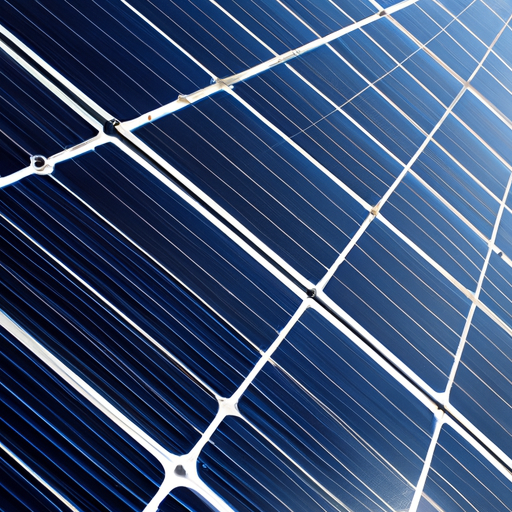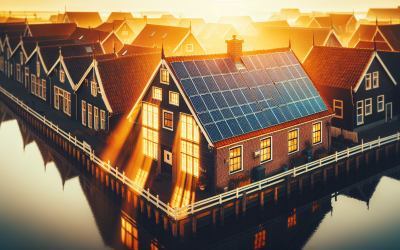So you’re considering installing solar panels on your home or business, but you’re wondering how long they will actually last. Well, you’re in luck! In this article, we’ll be exploring the typical lifespan of solar panels and what factors can affect their longevity. Whether you’re looking to save money on your energy bills or reduce your carbon footprint, understanding how long solar panels can continue generating electricity will help you make an informed decision.
Factors Affecting Lifespan of Solar Panels
Quality of Materials
The quality of materials used in manufacturing solar panels greatly affects their lifespan. High-quality materials, such as monocrystalline or polycrystalline silicon, are known to be more durable and long-lasting compared to lower-quality materials. Premium-grade solar panels often come with a higher price tag, but the investment pays off in terms of reliability and extended lifespan.
Installation Quality
The installation process plays a crucial role in determining the lifespan of solar panels. Improper installation techniques can decrease the efficiency of the panels and potentially lead to premature failure. It is important to hire experienced and certified professionals to ensure that the panels are installed correctly, making sure they are securely fastened, properly positioned, and correctly connected to the electrical system.
Climate Conditions
The climate conditions in which solar panels are installed can significantly impact their lifespan. Extreme weather conditions, such as heavy snowfall, hailstorms, strong winds, and intense heat, can cause damage to the panels over time. It is advisable to choose solar panels specifically designed to withstand the climate in your region. Additionally, regular inspections and maintenance can help identify and address any issues caused by harsh weather conditions.
Maintenance and Cleaning
Regular maintenance and cleaning are essential for maximizing the lifespan of solar panels. Dust, dirt, leaves, and other debris can accumulate on the surface of the panels, hindering their performance. Regularly cleaning the panels with mild soap and water, while avoiding abrasive cleaners, can help maintain their efficiency. Furthermore, checking for any loose connections, cracks, or signs of wear and tear can prevent potential damage and ensure the panels are operating optimally.
Average Lifespan of Solar Panels
Manufacturer’s Warranty
The manufacturer’s warranty provides valuable information about the expected lifespan of solar panels. Generally, reputable manufacturers offer warranties ranging from 10 to 25 years. However, it is important to note that the warranty does not necessarily reflect the actual lifespan of the panels. Factors such as the quality of materials and installation, as discussed earlier, can have a significant impact on the longevity of the panels.
Performance Degradation
Over time, solar panels experience a natural degradation of performance. This means that their efficiency gradually decreases as they age. On average, solar panels tend to lose about 0.5% to 1% of their efficiency per year. This degradation is influenced by various factors, including the quality of materials, climate conditions, and maintenance practices. It is important to consider this factor when estimating the lifespan of solar panels and their long-term energy production capabilities.
Expected Lifespan
While the manufacturer’s warranty typically provides a baseline for the expected lifespan of solar panels, it is important to note that many panels can surpass this timeframe. High-quality solar panels, installed and maintained properly, have the potential to last 25 to 30 years or even longer. However, it is crucial to regularly monitor their performance and address any issues promptly to ensure they continue to operate efficiently.
Extending the Lifespan of Solar Panels
Regular Maintenance
Regular maintenance is key to extending the lifespan of solar panels. This includes periodic inspections to identify any signs of damage or wear and tear. It is recommended to have a professional inspect the panels at least once a year to ensure they are in optimal condition. Additionally, checking the connections, modules, and inverters, and cleaning the surface of the panels, are all important aspects of regular maintenance.
Proper Cleaning
Proper cleaning is essential for maintaining the efficiency of solar panels. Dust, dirt, pollen, bird droppings, and other debris can accumulate on the surface, obstructing sunlight and reducing the panel’s ability to generate electricity. Cleaning the panels with mild soap and water using a soft cloth or sponge can effectively remove these substances. It is important to avoid using abrasive materials or harsh chemicals that could potentially damage the surface of the panels.
Monitoring Performance
Regularly monitoring the performance of solar panels is crucial for identifying any issues or decreases in efficiency. This can be done through a monitoring system that tracks the energy production of the panels. By keeping an eye on the system’s output, you can quickly detect any inconsistencies or deviations from the expected performance. Promptly addressing these issues can help prevent further damage and ensure the longevity of the panels.
Upgrading
Upgrading certain components of your solar panel system can also contribute to extending its lifespan. For example, replacing older inverters with more efficient models or upgrading to higher-capacity batteries can improve the overall performance and longevity of the system. It is advisable to consult with a professional to determine which upgrades are suitable for your specific setup.
Disposal and Recycling
Environmental Impact
Disposal and recycling of solar panels are crucial for minimizing their environmental impact. Solar panels contain various materials, including glass, aluminum, silicon, and rare metals, which can be harmful if not handled properly. When improperly disposed of, these materials can release toxic substances into the environment, leading to soil and water pollution. Therefore, it is important to ensure that end-of-life solar panels are recycled and dealt with responsibly.
Current Recycling Practices
Currently, solar panel recycling practices vary depending on the region. Some countries have established recycling programs and regulations, while others are still in the early stages of developing proper recycling infrastructure. Recycling generally involves separating the different components of the panels, such as the glass, metals, and silicon, and recycling them accordingly. There are specialized facilities and companies that handle the recycling process, ensuring that the valuable materials are properly recovered and reused.
Future Developments
As the demand for solar panels continues to grow, there is a growing focus on improving the recycling processes and developing more sustainable practices. Research and development efforts are underway to find innovative solutions for maximizing the recycling potential of solar panels. These include the development of more efficient recycling technologies and the exploration of methods to recover valuable materials from older, less efficient panels. It is important to support these ongoing efforts to ensure the long-term sustainability of solar energy.
Conclusion
The lifespan of solar panels is influenced by various factors, including the quality of materials, installation practices, climate conditions, and maintenance. While the average lifespan of solar panels is typically reflected in the manufacturer’s warranty, it is possible for well-maintained panels to exceed this timeframe. Regular maintenance, proper cleaning, monitoring performance, and upgrading components can all contribute to extending the lifespan of solar panels. Additionally, the responsible disposal and recycling of end-of-life panels are essential for minimizing their environmental impact. By considering these factors and taking the necessary steps, you can ensure that your solar panels continue to generate clean, renewable energy for years to come.









